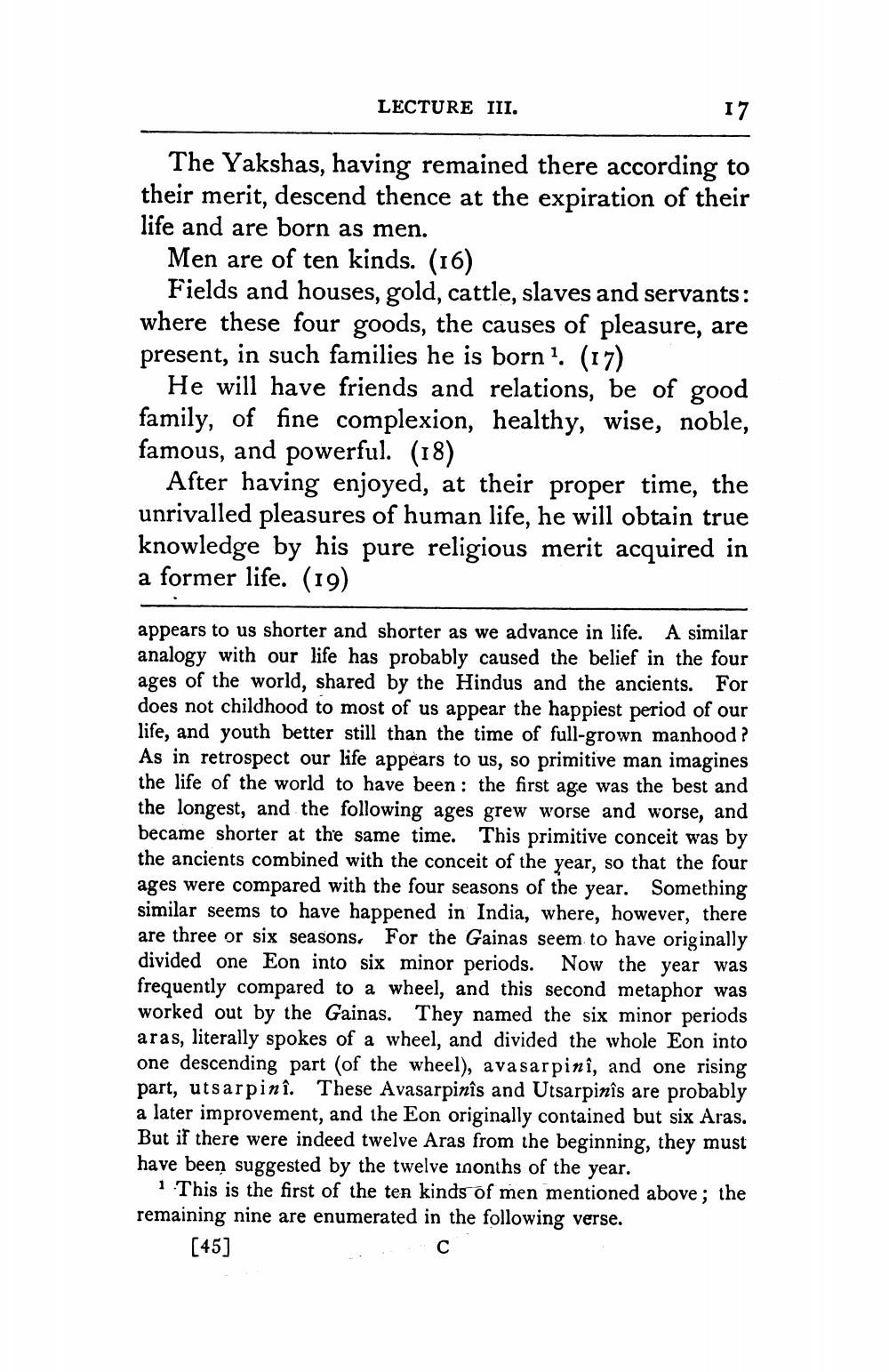________________
17
The Yakshas, having remained there according to their merit, descend thence at the expiration of their life and are born as men.
Men are of ten kinds. (16)
Fields and houses, gold, cattle, slaves and servants: where these four goods, the causes of pleasure, are present, in such families he is born1. (17)
He will have friends and relations, be of good family, of fine complexion, healthy, wise, noble, famous, and powerful. (18)
LECTURE III.
After having enjoyed, at their proper time, the unrivalled pleasures of human life, he will obtain true knowledge by his pure religious merit acquired in a former life. (19)
appears to us shorter and shorter as we advance in life. A similar analogy with our life has probably caused the belief in the four ages of the world, shared by the Hindus and the ancients. For does not childhood to most of us appear the happiest period of our life, and youth better still than the time of full-grown manhood? As in retrospect our life appears to us, so primitive man imagines the life of the world to have been: the first age was the best and the longest, and the following ages grew worse and worse, and became shorter at the same time. This primitive conceit was by the ancients combined with the conceit of the year, so that the four ages were compared with the four seasons of the year. Something similar seems to have happened in India, where, however, there are three or six seasons. For the Gainas seem to have originally divided one Eon into six minor periods. Now the year was frequently compared to a wheel, and this second metaphor was worked out by the Gainas. They named the six minor periods aras, literally spokes of a wheel, and divided the whole Eon into one descending part (of the wheel), avasarpinî, and one rising part, utsarpinî. These Avasarpinîs and Utsarpinîs are probably a later improvement, and the Eon originally contained but six Aras. But if there were indeed twelve Aras from the beginning, they must have been suggested by the twelve inonths of the year.
1 This is the first of the ten kinds of men mentioned above; the remaining nine are enumerated in the following verse.
[45]
C




